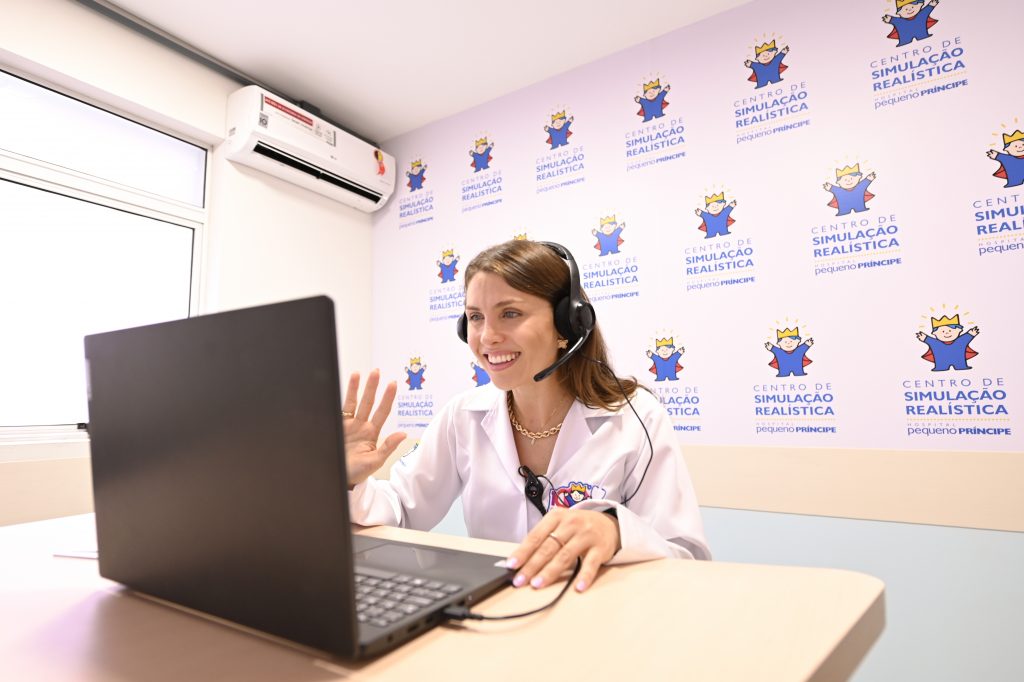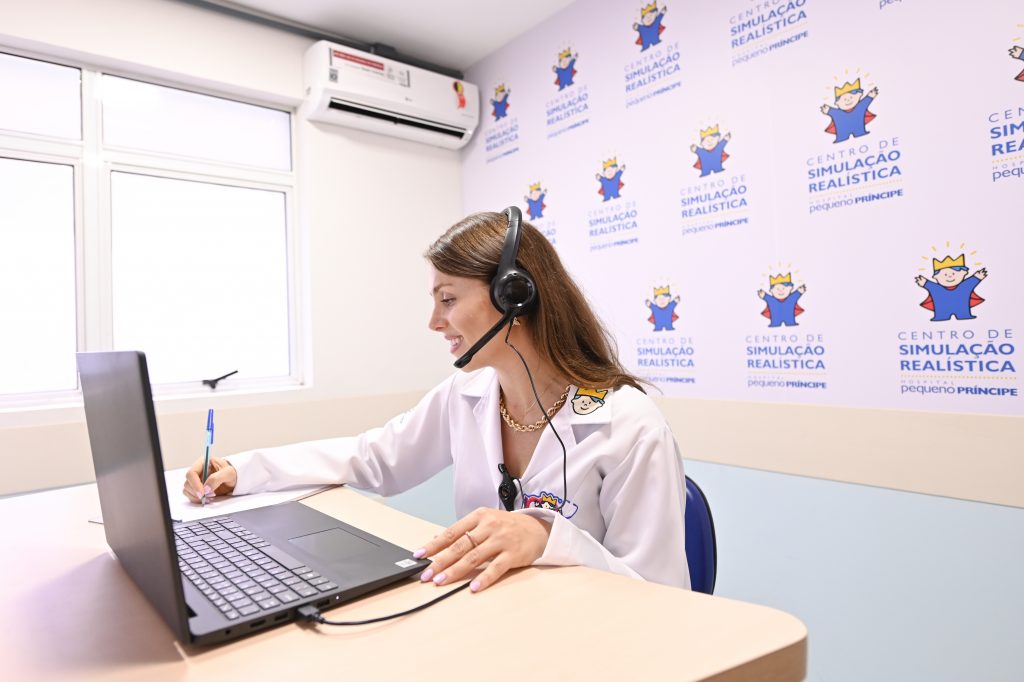Pequeno Príncipe expands telemedicine and brings neuropediatrics to Northern Brazil
Consultations are being held at a clinic in Vilhena, the third-largest city in Rondônia, located 800 kilometers from the capital
An agreement between Pequeno Príncipe Hospital and Plena Clínica de Infusão de Medicamentos e Saúde is enabling consultations with neuropediatricians for children in Vilhena, a municipality in the Brazilian state of Rondônia known as the “Gateway to the Amazon,” located at the entrance to the region called Western Amazon.
Vilhena has about 100,000 inhabitants, with approximately 30,000 children and adolescents aged 0 to 18, according to the Brazilian Institute of Geography and Statistics. Located about 800 kilometers from the capital, Porto Velho, the city suffers from a shortage of specialized pediatric professionals. Neuropediatrics is one of the areas of need. “Flight itineraries to bring professionals in person are costly and unstable. This makes it difficult for professionals to maintain consistent attendance, and the population suffers from lack of continuity in treatments,” explained neurologist Simone Lucatto, director of the clinic.

Given this difficulty, she sought out the Telehealth Service at Pequeno Príncipe and became a partner clinic, benefiting from the expertise of the Hospital’s professionals for specialized child care via telemedicine.
Methodology ensures quality
Neurologist Michele Zeny from Pequeno Príncipe developed the remote consultation methodology for pediatric neurology. Based on a pre-established script, a health professional present at the clinic performs the physical examination of the patient beforehand. During the consultation, the doctor refines the investigation. The presence of a health professional to assist with the physical examination and a back-up neurologist who helps with dispensing controlled medications completes the methodology, ensuring a comprehensive and high-quality consultation.
“With the telemedicine model in the clinic, we can maintain the proper frequency of consultations without changing professionals. We also reduce the difficulties of telemedicine at home, such as the need for physical exams and the dispensing of controlled medications, which require special prescriptions,” pointed out Simone. According to her, even complex cases have been resolved through remote consultations. “We had a patient with autoimmune encephalitis where clinical suspicion was essential in managing the seizures,” she revealed.

A hospital without bricks
Physician Rafaela Wagner, coordinator of the Telehealth Service at Pequeno Príncipe, emphasized the institution’s commitment to innovation and strengthening safe digital health practices. “With methodology and commitment to excellence, we can provide specialized care to regions lacking such professionals, decentralizing access to quality and effective medicine, which is now concentrated in large urban centers. In this way, we put the concept of a hospital without bricks into practice and contribute to the improvement of pediatric care in Brazil,” she emphasized.
In addition to Vilhena, the initiative is also being implemented in a clinic in Palhoça, in Santa Catarina state. In Paranaguá, on the Paraná beach coast, the partnership is with the Municipal Health Department. The Hospital has also established a partnership with Itamed Hospital (formerly Hospital Ministro Costa Cavalcanti) in Foz do Iguaçu, also in the state of Paraná, to develop a teleconsulting program in pediatric neurology for the pediatric ICU, assisting intensivists with cases involving neurological complaints in the unit.

